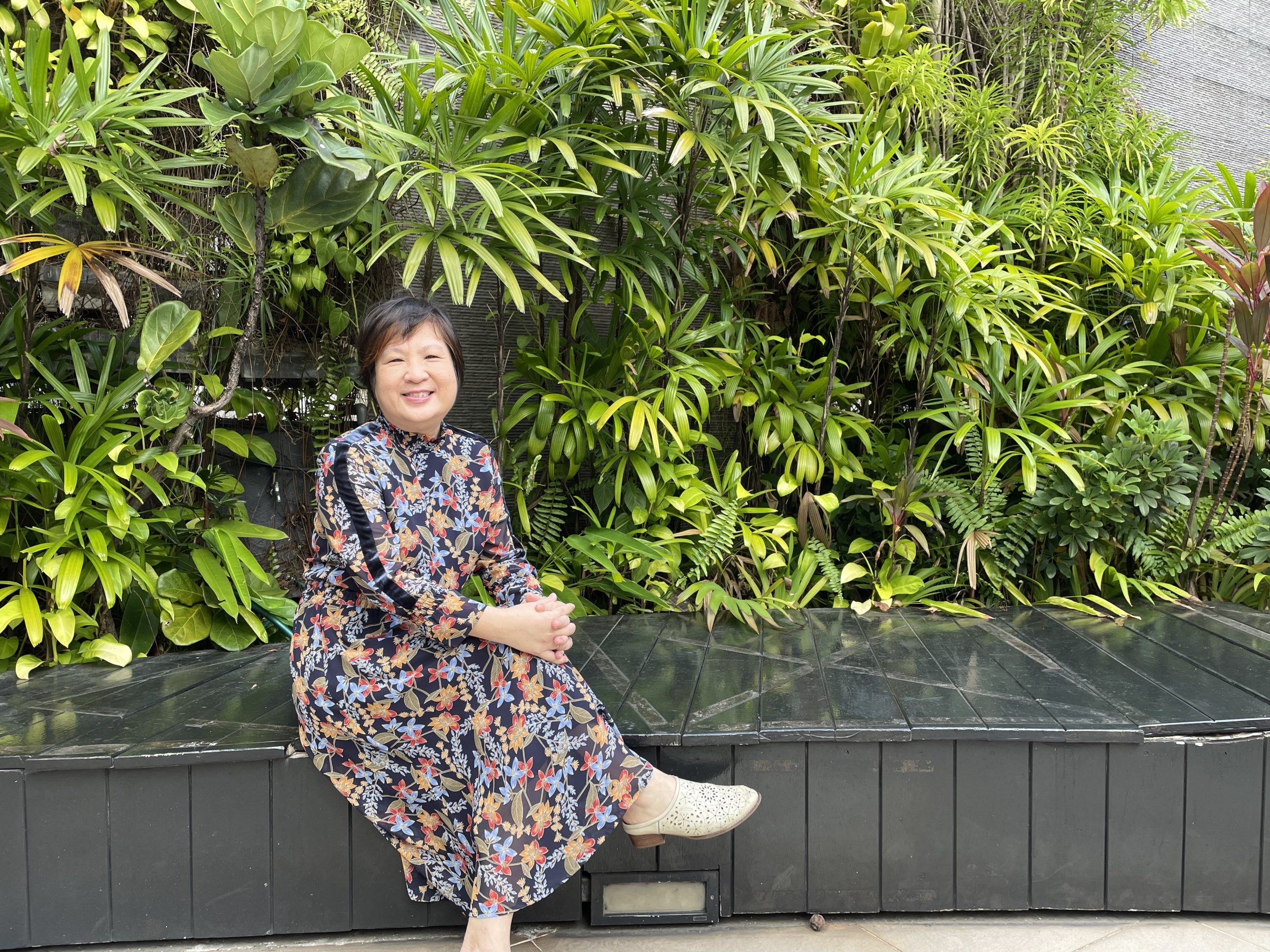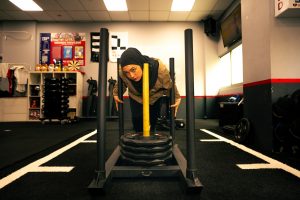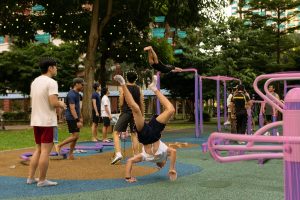Top image: Madam Cheong Lai Siong
“I was first introduced to computers during my undergraduate years in the late 1970s and early 1980s,” said Mr Han Cheng Kwang, a retired civil engineer and voluntary trainer offering drone lessons to seniors.
“We were trained in Fortran programming, and we used these envelope-sized punched cards for data input, output and storage. Computers would read the holes on the cards to carry out commands. So, we accumulate stacks of them for various functions. Coding, or technology in general, was primitive then.”
Computers then and now
Society is a skilful hypnotist. It force-feeds our ideas and perceptions in a subtle and refined manner that we often digest readily without question. Whoever believes elderly adults see computers as Greek are probably the latest victims given the active effort in recent years encouraging our silver generation to be more tech-savvy.
A more appropriate thought would be not all seniors are digitally less capable. Harnessing digital skills goes beyond knowing a few popular applications, scanning the QR codes, pressing the OTPs in time, or posting dance videos taken in NTUC on TikTok.
Admittedly, some need hand-holding, but it’s irrational to dominate the mainstream narrative with the elderly’s bungled attempts to tame the mechanical beasts found on their palms or sitting in front of them.
More importantly, the IT knowledge some seniors learned when they were our age differed from what we are taught today.
“In those days, we understood computers as some form of an ‘electric typewriter’ since we didn’t have a terminal,” noted Ms Natalie Tan Ngah Leng. Ms Natalie and her husband, Mr Goh Teng Chiew, were the pioneer batches of computer science students at Nanyang University, the first local higher education body to offer such training.
“It can get frustrating at times since we couldn’t see what we’ve typed as we type,” Ms Natalie continued. “It might take us a while to figure out where we’ve made a mistake as we need to sift through and identify that punched card with the wrong hole.”
“Different coloured punched cards represent different sections. All of them need to be sorted in the correct sequence for computers to work,” Mr Goh added. “So, things become a lot easier on Word documents. At least we can see what we’ve typed, and there’s the auto-correct function.”
For other seniors, owning and maintaining a piece of technology cost a premium in the past.
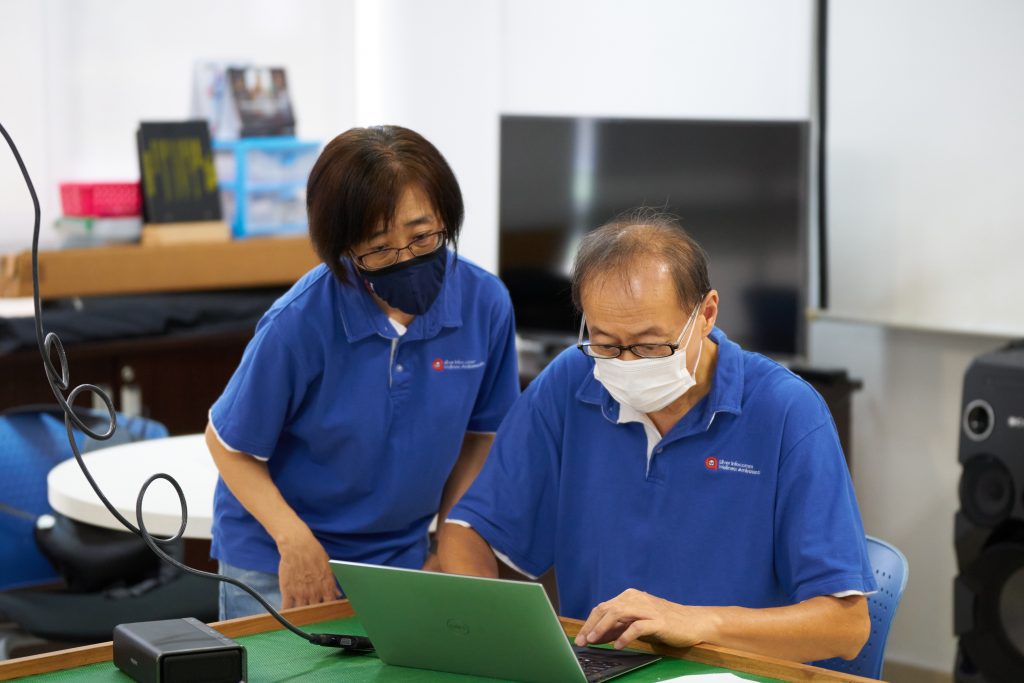
“Nowadays, we don’t need to own a car to drive. We can rent or share it with someone and pay for the time of use,” said Madam Cheong Lai Siong, a former IBM employee of 30 years and Founder of digital training agency Orchid Creative which teaches elderly learners digital scrapbooking.
“Likewise, we don’t have to own a piece of technology to enjoy automation. We have on-demand music and entertainment streaming services. We pay for the storage space we want on the Cloud, and many applications are free for our everyday convenience.”
“Things were very different back in the days,” Madam Cheong said. “Mainframe computers were all we had. These Big Iron were held in air-conditioned rooms and maintained by a pool of skilled systems engineers, and only the ‘Big Clients’ like Fortune 500 companies and banks were able to pay for them. The same goes for emails. We only had BitNet, where one needed to be part of an institution or company that was paying for a digital mailing system to be able to own an email address.”
“Now we can enjoy the comfort of using computers at home and our smartphones anywhere we go,” said Mr Goh. “These were not possible in the early days as we could only go to the computer centres and the computer screens provided with, were all in green. There weren’t any pictures or colours, so it got boring and fatiguing after a while.”
The proliferation of the internet, search engines, e-commerce and other related services chopped up what used to be a privilege into pieces that anyone could quickly get hold of, lowering the barrier for many innovations to be born.
The divide
“We have transited into a time of personalisation where companies are coming up with different solutions for a whole range of purposes,” said Madam Cheong. “We can do anything online, and everyone is competing for others’ attention. I feel this evolution is even more significant than the emergence of the World Wide Web in the late 80s and early 90s.” Lai Siong joined IBM through a campus recruitment drive in 1986, when IT was not even an industry.
“I have been fortunate,” she noted. “I witnessed how the company took the lead in shaping what the trade should look like as PCs came around in the 90s, all the way to cloud computing, data analytics, and mobile technology in the present days.”
Mr Han, Mr Goh and Ms Natalie all share similar feelings. They feel blessed “to know a bit more and earlier than many others”.
“I remember the initial tech market could only accommodate about 60 graduates a year,” Mr Goh recalled. “It was later that we saw more IT companies engaged in supporting the government and civil service going digital, and then rules and regulations were shaped.”
The seniors highlighted this as the point in time when the divide kicked in, and some individuals were unintentionally left behind as technology picked up speed, changing the world around us in ways we had never imagined.
“Singapore moved from a third world country to a first world country within a generation, and unfortunately, some people missed out on the opportunity to be educated in a way that matched the rapid growth and advancement,” said Madam Cheong.
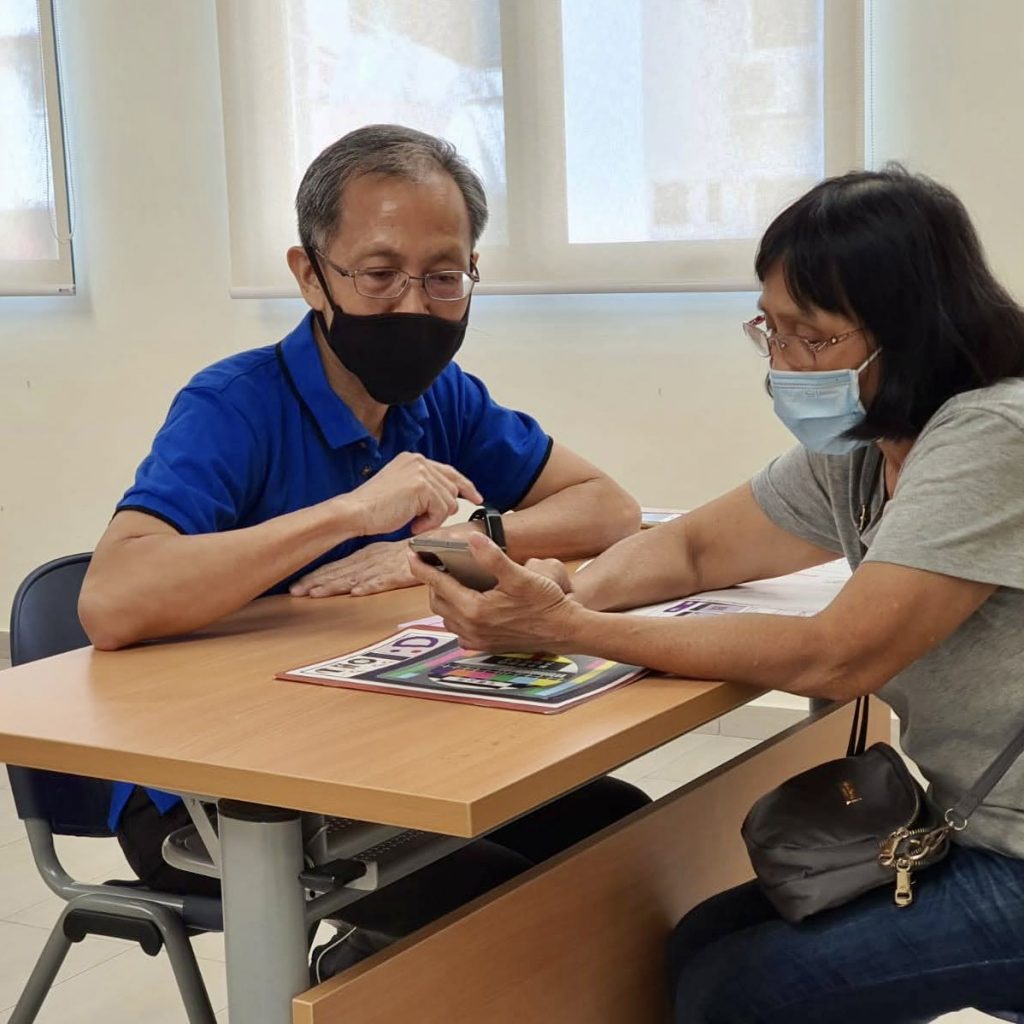
Intuitiveness and unspoken standards
To close the gap, those who were once left out are now forced to venture into a domain that was out of reach to them before. They need to master a new skill independently, like how to operate a new washing machine, but without any instruction manual.
“We used to have user guides for nearly everything, including the remote controls,” Ms Natalie noted. “When it comes to a smart device or an application, we tend to assume a user guide is not necessary if it’s intuitively designed. Over time, this thinking establishes some unspoken standards that make it hard for new users to follow.”
Seniors would have to undergo a stage where they learn things that are not intuitive, like online lingo. Adding onto the challenge, manoeuvring the computers and the internet entails some level of English understanding, making it difficult for those who only understand other languages to learn.
In turn, many of us can only reiterate digital terminologies (i.e., webpage, data, wifi) in English.
That’s part of the reason why the four interviewees have all chosen to offer guidance and support to other seniors.
“Because we understand their challenges,” Mr Goh said. “Some seniors are afraid of what may happen after they click certain buttons on their smartphones, and they will panic when things don’t turn out as expected. This is especially true for e-payment or accessing a banking application. We relate to that and reassure them with our own experiences.”
“Other seniors have a very systematic way of learning computers. They’d bring along a little notebook and write down every single instruction. We don’t discourage that; we give them the time to do it. I think it’s a good approach, helping them to remember what has taken place.”
“We would modify the progress and goals and involve translators, when possible, to make the lessons comprehensive,” said Mr Han, referring to the mass training programmes he had conducted for students of varied backgrounds. “We will go slow for those who can’t read clearly what’s on their screens or the motor skills to manipulate their smartphones.”
Moreover, Madam Cheong feels we shouldn’t focus only on teaching seniors about technology, but also on addressing their emotional needs.
“The feedback I’ve often heard was that even though their children are willing to help, they then expect the seniors to remember what they were taught after they’ve been told once,” she explained.
“When they fail, they feel bad going back to their children and asking the same question again. I have also met highly educated elderly who are technology-phobic because the frequent cold shoulder from their children made them decide not to touch IT at all. On the other hand, seniors who showed keen interests in learning tend to be the ones who see messaging or video conferencing as ways to get connected with their loved ones. Often, it’s all these little details that make a world of difference.”
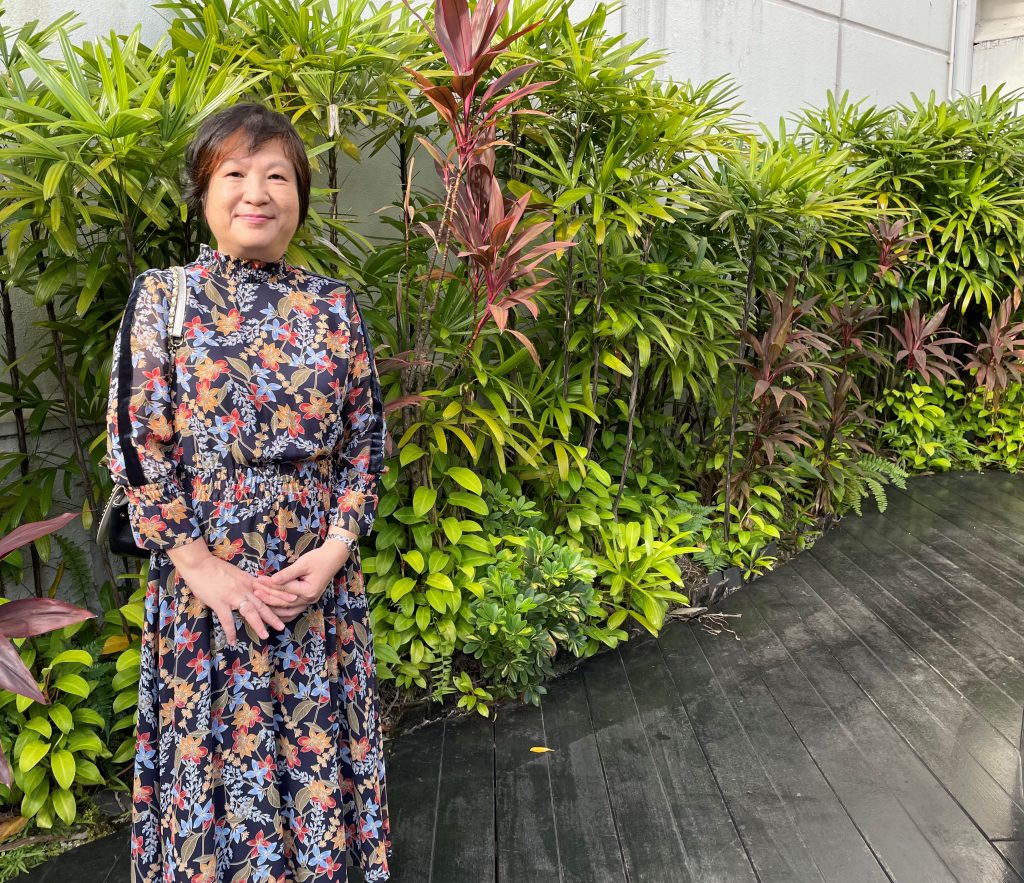
Practicality and confidence
The four seniors believe digital lessons for the elderly must contain two ingredients. One is practicality. Not all elderly are interested in posting their lives on the internet, so lessons on e-services and communication tools may better help them in their everyday lives.
Second, we need to boost their confidence and give them a sense of achievement after they’ve grasped a skill. “At the end of the day, it all boils down to the emotional incentives that come with picking up new digital skills,” Mr Han reminded.
“Cities are not homogeneous, neither are people,” Madam Cheong added. “People want to learn for different reasons, and we need to propel and sustain them. I think it’s more valuable to make the technology suitable and relevant so that seniors on any point of that capability spectrum can pick it up and apply it in real-life with ease.”
Technology is evolving, and it will be more and more advanced in time to come. We may arrive at a time when going digital is no longer an option. Also, none of the seniors expressed frustration while explaining to me what a punched card and mainframe computer is. So, why can’t we show that same level of patience in return?
It wouldn’t be long for our grandchildren to “tsk” at us for not knowing quantum computing, for not having a glamourous presence on the metaverse and how clumsy we are controlling an interface with our thoughts. While you may think they are taken from sci-fi scenes, what goes around comes around, so who knows?

